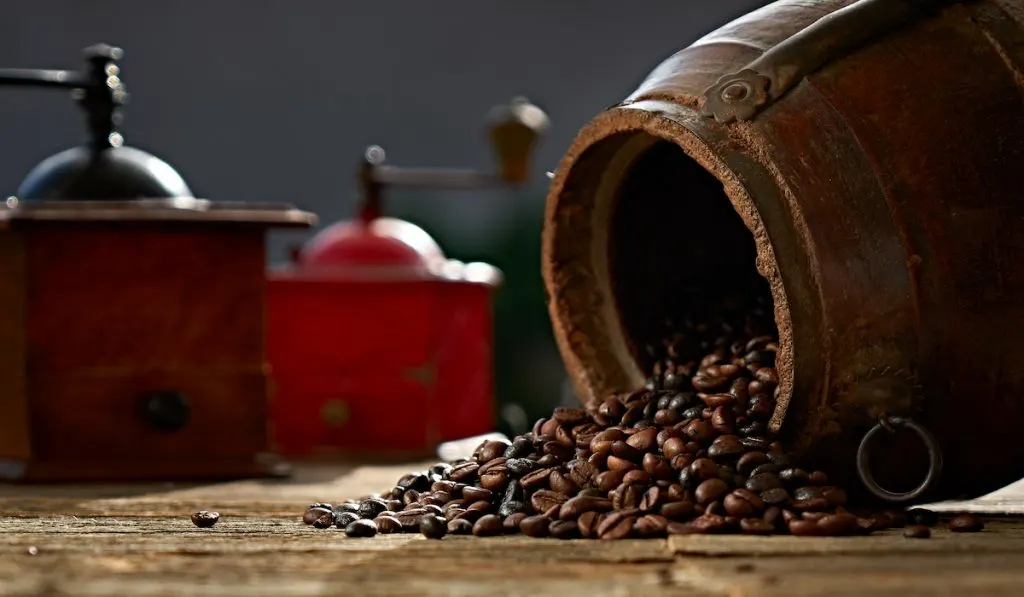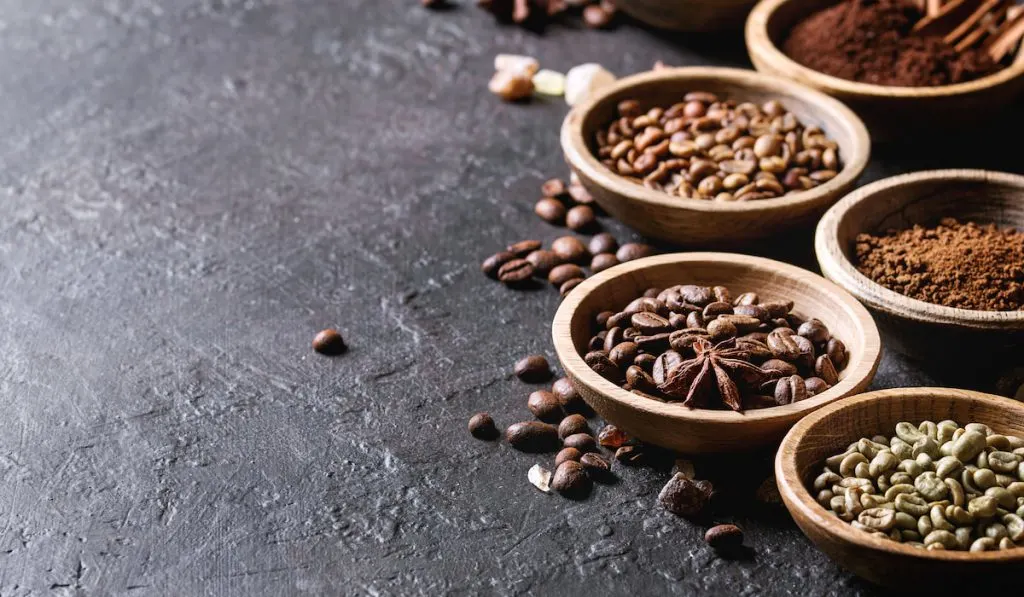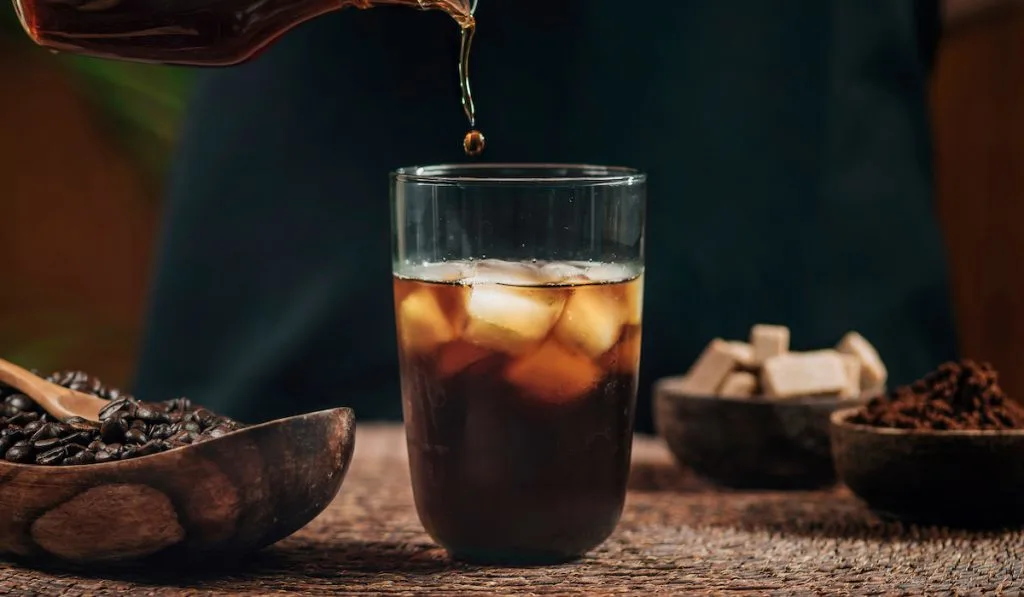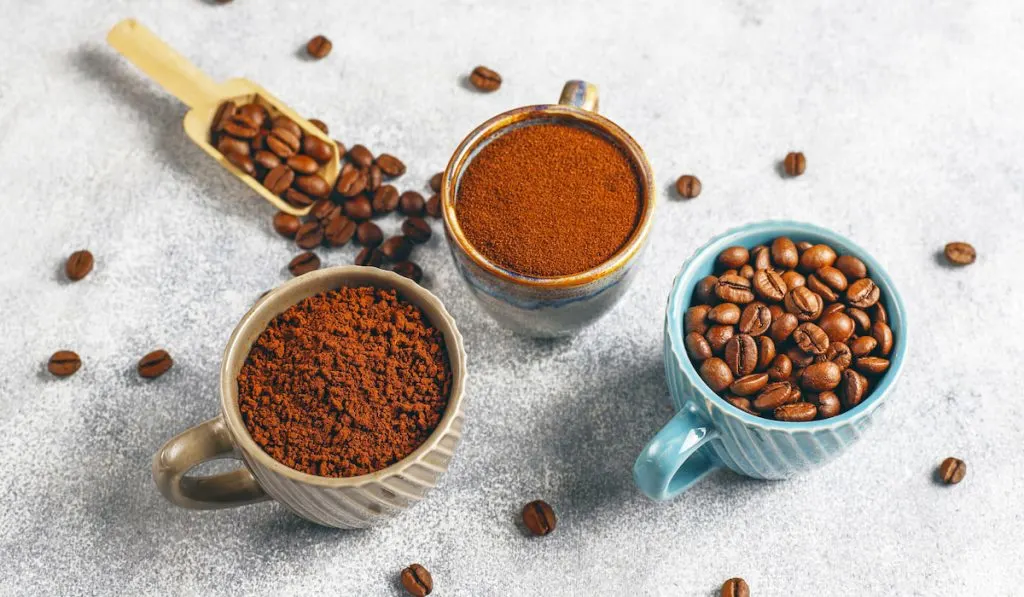Caffeine is one substance you will find in several beverages and foods, including cocoa, tea, chocolate, and coffee.
It comes naturally in tea plants, guarana berries, coffee beans, kola nuts, and many other plants. Caffeine has various uses: as a flavoring agent, as a stimulant, and even as a drug.
Does caffeine have a taste? Yes, it does. When unmixed, caffeine is bitter.
Caffeine is an alkaloid, so it is no surprise that caffeine is bitter like many other alkaloids. When added to beverages, caffeine complements and enhances the flavor of the drink.
For example, when caffeine is used in cola products, its bitterness becomes part of the taste. The caffeine, in this instance, adds to that unique cola taste and is also used to reduce the sweetness.

In the rest of this article, we explore the flavor of caffeine and how it affects beverages.
Does Caffeine Have a Taste?
Yes, caffeine has a taste. When not sweetened or mixed with any beverage, caffeine has a bitter alkaline taste.
But when you sweeten caffeine or add it to a beverage, you get a new taste. Typically, the outcome of such combinations is a blend of the taste of caffeine and the drink.
Of course, the ratio of caffeine to the sweetener or beverage determines which flavor is dominant.
The flavor caffeine brings to beverages is unique. So, if caffeine is omitted from a drink, it may not take much to detect the difference.

Does It Have a Smell?
Well, if you have had coffee before, you will certainly agree that it has a peculiar smell. In fact, the smell of freshly brewed coffee is hard to miss when you are around it.
But while coffee has a smell, it would interest you to know that caffeine is odorless. Coffee does not get its smell from caffeine.
Additionally, a combination of volatile compounds in coffee gives it a distinct aroma. Some of these compounds are furfurylthiol and hydroxymethylfurfural.
Besides being odorless, caffeine is a white powder that becomes colorless in water. The dark color of coffee actually comes from the phenolic compounds (tannins) and the citric acid in coffee.

Does It Affect the Way Soda, Coffee, and Tea Tastes?
There are quite a number of people out there who question the use of caffeine as a flavoring agent, especially for soft drinks.
Due to its bitter taste, it might be difficult for someone who has tasted pure caffeine to understand how it enhances flavor.
In a drink like caffeinated water, caffeine may not really affect taste. The quantity of caffeine usually dissolved in water is very little. So, the outcome is mostly tasteless or faintly alkaline.
When added to beverages like tea, soda, or coffee, caffeine contributes its bitterness to the flavor. It also reacts with other substances in the drinks to create a new flavor.
The interaction between the other ingredients in a product and caffeine contributes to their unique taste.
The difference in the taste of some decaffeinated products is not down to the absence of caffeine alone. Sometimes, it is caused by the lack of the product resulting from the caffeine interaction.
If caffeine is removed from soda or coffee, it would not be hard to notice the difference in flavor. The absence of that bitterness is easy to spot.

Why Does Decaf Coffee Taste So Different From Caffeinated Coffee?
People have varying caffeine needs and tolerance. Some people need and prefer a lot of caffeine, while others are fine with a little dose.
People who enjoy caffeine opt for caffeinated coffee. On the other hand, those who prefer only a little caffeine opt for decaf.
It turns out that the caffeine content is not the only difference between caffeinated coffee and decaf. These two types of coffees have different tastes too.
In making decaf coffee, the caffeine content is reduced through a process called decaffeination.
This process affects the levels of not only caffeine but other chemicals in the coffee beans. This is what causes the disparity in the taste of decaf coffee relative to caffeinated coffee.
Generally, decaf coffee is flatter and weaker than caffeinated coffee. The difference even goes beyond taste.
Decaf coffee may also have a milder smell and a different color compared to caffeinated coffee.
Beyond being caffeinated or decaf, know that the flavor of coffee products may differ for other reasons.
For one, the origin of the coffee beans would play a role in the taste and smell of a coffee product. Beyond that, the roasting process, the coffee bean variety, and the grinding process also affect flavor.
Final Take
Pure caffeine has a taste, albeit a bitter one. This bitterness contributes to and enhances the overall flavor of many beverages caffeine is added to.
Interestingly, while caffeine can contribute to the taste of whatever drink it is added to, it has no direct effect on the smell. This is because caffeine has no odor.
Resources
- https://dialupthecoffee.com/decaf-vs-regular-coffee-what-is-the-difference/
- https://www.coca-colacompany.com/au/news/the-facts-about-caffeine-and-soft-drinks-your-questions-answered
- https://www.wbur.org/npr/467844829/inside-the-anonymous-world-of-caffeine
- https://www.softschools.com/formulas/chemistry/caffeine_formula/465
- https://www.coffeeandhealth.org/all-about-coffee/aroma-and-flavour-composition-of-coffee/
- https://spoonuniversity.com/lifestyle/science-behind-coffee-smells-good
